- Компании
- Takeda. О компании, буклеты, каталоги, контакты
- Olympus. О компании, буклеты, каталоги, контакты
- Boston Scientific. О компании, буклеты, каталоги, контакты
- Pentax. О компании, буклеты, каталоги, контакты
- Fujifilm & R-Farm. О компании, буклеты, каталоги, контакты
- Erbe. О компании, буклеты, каталоги, контакты
- Еще каталоги
- Мероприятия
- Информация
- Обучение
- Классификации
- Атлас
- Quiz
- Разделы
- Пациенту
QR-код этой страницы
Для продолжения изучения на мобильном устройстве ПРОСКАНИРУЙТЕ QR-код с помощью спец. программы или фотокамеры мобильного устройства
Статьи: Скрининг рака толстой кишки: достижения и перспективы
| Авторы: | Е. А. Полянская 1 М. Ю. Федянин А. А. Трякин С. А. Тюляндин 2018г. |
| Об авторах: |
1. Национальный медицинский исследовательский центр онкологии им. Н.Н. Блохина Минздрава России |
Введение:
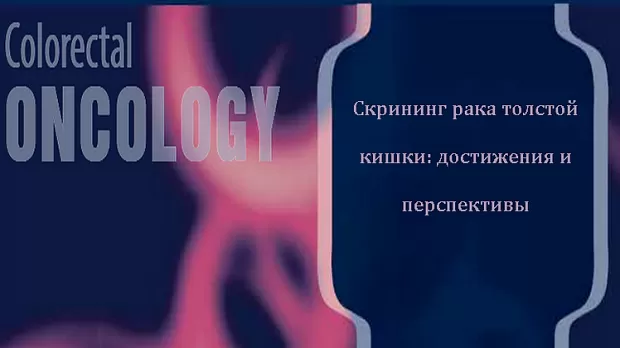
Список литературы:
- Bray F., Ferlay J., Soerjomataram I. et al. Global cancer statistics 2018: GLOBOCAN estimates of incidence and mortality worldwide for 36 cancers in 185 countries. CA Cancer J Clin 2018;68(6):394–424. PMID: 30207593. DOI: 10.3322/caac.21492.
- Приказ Министерства здравоохранения РФ от 26 октября 2017 г . № 869н «Об утверждении порядка проведения диспансеризации определенных групп взрослого населения». [Order of the Ministry of Health of the Russian Federation No. 869n dated October 26, 2017 “On the approval of the procedure for regular medical examination in certain groups of adults”. (In Russ.)].
- Labianca R., Nordlinger B., Beretta G.D. et al. Clinical practice guidelines Early colon cancer: ESMO Clinical Practice Guidelines for diagnosis, treatment and follow-up. Ann Oncol 2013;24(Suppl 6): vi64–72. PMID: 24078664. DOI: 10.1093/annonc/mdt354.
-
GGPO. Evidenced-based Guideline for Colorectal Cancer, long version 1.0. Berlin, 2014. Available at: http://www.awmf. org/fileadmin/user_upload/Leitlinien/021_D_Ges_fuer_Verdauungs_und_Stoffwechselkrankheiten/021-007_S3_Colorectal_Cancer_2015_03-extended.pdf.
- Bacchus C.M., Dunfield L., Gorber S.C. et al. Recommendations on screening for colorectal cancer in primary care. CMAJ 2016;188(5):340–8. PMID: 26903355. DOI: 10.1503/cmaj.151125.
- National Comprehensive Cancer Network Guidelines, version 2.2017. Colorectal Cancer Screening. Available at: https:// www.nccn.org/professionals/physician_gls/default.aspx.
- Bibbins-Domingo K., Grossman D.C., Curry S.J. et al. Screening for Colorectal Cancer: US Preventive Services Task Force Recommendation Statement. JAMA 2016;315(23):2564–75. PMID: 27304597. DOI: 10.1001/jama.2016.5989.
-
Guerra C.E., LaMonte S.J., Etzioni R. et al. Colorectal cancer screening for average-risk adults: 2018 guideline update from the American Cancer Society. CA Cancer J Clin 2018;68(4):250–81.DOI: 10.3322/caac.21457.
- Rex D.K., Boland C.R., Domonitz J.A. et al. Colorectal Cancer Screening Recommendations for physicians and patients from the US Multi-Society Task Force on Colorectal Cancer. Am J Gastroenterol 2017;112(7):1016–30. DOI: 10.1038/ajg.2017.174.
- Sung J.J., Ng S.C., Chan F.K. et al. An updated Asia Pacific Consensus Recommendations on colorectal cancer screening. Gut 2015;64(1):121–32. PMID: 24647008. DOI: 10.1136/gutjnl-2013-306503.
-
Fang J.Y., Zheng S., Jiang B. et al. Consensus on the Prevention, Screening, Early Diagnosis and Treatment of Colorectal Tumors in China: Chinese Society of Gastroenterology. Gastrointest Tumors2014;1(2):53–75. PMID: 26672726. DOI: 10.1159/000362585.
- Hamzehzadeh L., Yousefi M., Ghaffari S.H. Colorectal cancer screening: a comprehensive review to recent non-invazive methods. Int J Hematol Oncol Stem Cell Res 2017;11(3):250–61. PMID: 28989593.
- Davies R.J., Miller R., Coleman N. Colorectal cancer screening: prospects for molecular stool analysis. Nat Rev Cancer 2005;5(3):199–209. PMID: 15738983. DOI: 10.1038/nrc1545.
- Hassan C., Giorgi Rossi P., Camilloni L. et al. Meta-analysis: adherence to colorectal cancer screening and the detection rate for advanced neoplasia, according to the type of screening test. Aliment Pharmacol Ther 2012;36(10):929–40. PMID:23035890. DOI: 10.1111/apt.12071.
- Telford J.J., Levy A.R., Sambrook J.C. et al. The cost-effectiveness of screening for colorectal cancer. CMAJ 2010;182(12):1307–13. PMID: 20624866. DOI: 10.1503/cmaj.090845.
-
Cooper G.S., Kou T.D., Rex D.K. Complications following colonoscopy with anesthesia assistance: a population-based analysis. JAMA Intern Med 2013;173(7):551–6. PMID: 23478904.DOI: 10.1001/jamainternmed.2013.2908.
-
Fitzpatrick-Lewis D., Ali M.U., Warren R. et al. Screening for Colorectal Cancer: A Systematic Review and Meta-Analysis Clinical Colorectal Cancer. Clin Colorecta lCancer 2016;15(4):298–313.DOI: 10.1016/j.clcc.2016.03.003.
-
Schoen R.E., Machicado J.D. Detection of advanced neoplasia with FIT versus flexible sigmoidoscopy versus colonoscopy: more is more. Dig Dis Sci 2015;60(5):1123–5. PMID: 25701322.DOI: 10.1007/s10620-015-3583-2.
- Holme O., Lоberg M., Kalager M. et al. Long-term effectiveness of sigmoidoscopy screening on colorectal cancer incidence and mortality in women and men: a randomized trial. Ann Intern Med 2018;168(11):775–82. DOI: 10.7326/M17-1441.
-
Rockey D.C., Paulson E., Niedzwiecki D. et al. Analysis of air contrast barium enema, computed tomographic colonography, and colonoscopy: prospective comparison. Lancet 2005;365(9456):305–11.PMID: 15664225. DOI: 10.1016/S0140-6736(05)17784-8.
-
Van Gossum A., Munoz-Navas M., Fernandez-Urien I. et al. Capsule endoscopy versus colonoscopy for the detection of polyps and cancer. N Engl J Med 2009;361(3):264–70. PMID: 19605831.DOI: 10.1056/NEJMoa0806347.
-
Eliakim R., Yassin K., Niv Y. et al. Prospective multicenter performance evaluation of the second-generation colon capsule compared with colonoscopy. Endoscopy 2009;41(12):1026–31. PMID: 19967618.DOI:10.1055/s-0029-1215360.
- Goede S.L., Rabeneck L., Ballegooijen M. et al. Harms, benefits and costs of fecal immunochemical testing versus guaiac fecal occult blood testing for colorectal cancer screening. PLoS One 2017;12(3):e0172864. DOI: 10.1371/journal.pone.0172864.
-
Allison J.E., Tekawa I.S., Ransom L.J., Adrain A.L. A comparison of fecal occultblood tests for colorectal-cancer screening. N Engl J Med 1996;334(3):155–9. PMID: 8531970.DOI: 10.1056/NEJM199601183340304.
-
Lieberman D. Colon cancer screening and surveillance controversies. Curr Opin Gastroenterol 2009;25(5):422–7.PMID: 19465849.DOI: 10.1097/MOG.0b013e32832d1e2a.
- Ahlquist D.A., Klee G.G., McGill D.B., Ellesfon R.D. Colorectal cancer detection in the practice setting. Impact of fecal blood testing. Arch Intern Med 1990;150(5):1041–5. PMID: 2331185.
-
Van Dam L., Kuipers E.J., van Leerdam M.E. Performance improvements of stool-based screening tests. Best Pract Res Clin Gastroenterol 2010;24(4):479–92. PMID: 20833351.DOI: 10.1016/j.bpg.2010.03.009.
- Li S., Wang H., Hu J. et al. New immunochemical fecal occult blood test with twoconsecutive stool sample testing is a costeffective approach for colon cancer screening: results of a prospective multicenter study in Chinese patients. Int J Cancer 2006;118(12):3078–83. PMID: 16425283. DOI: 10.1002/ijc.21774.
-
Toth K., Sipos F., Kalmar A. et al. Detection of methylated SEPT9 in plasma is a reliable screening method for both leftand right-sided colon cancers. PLoS One 2012;7(9):e46000. PMID: 23049919.DOI: 10.1371/journal.pone.0046000.
- Steele R.J., McClements P., Watling C. et al. Interval cancers in a FOBT-based colorectal cancer population screening programme: implications for stage, gender and tumour site. Gut 2012;61(4):576–81. PMID: 21930729. DOI: 10.1136/gutjnl-2011-300535.
- Brenner H., Haug U., Hundt S. Sex differences in performance of fecal occult blood testing. Am J Gastroenterol 2010;105(11):2457–64. PMID: 20700114. DOI: 10.1038/ajg.2010.301.
- Van Rossum L.G., van Rijn A.F., Laheij R.J. et al. Random comparison of guaiac and immunochemical fecal occult blood tests for colorectal cancer in a screening population. Gastroenterology 2008;135(1):82–90. PMID: 18482589. DOI: 10.1053/j.gastro.2008.03.040.
- Ahlquist D.A., Sargent D.J., Loprinzi C.L. et al. Stool DNA and occult blood testing for screen detection of colorectal neoplasia. Ann Intern Med 2008;149(7):441–50. PMID: 18838724.
- Pignone M., Campbell M.K., Carr C., Phillips C. Meta-analysis of dietary restriction during fecal occult blood testing. Eff Clin Pract 2001;4(4):150–6. PMID: 11525101.
- Rozen P., Levi Z., Hazai R. et al. Quantitative colonoscopic evaluation of relative efficiencies of an immunochemical faecal occult blood test and a sensitive guaiac test for detecting significant colorectal neoplasms. Aliment Pharmacol Ther 2009;29(4):450–7. PMID: 19035980. DOI: 10.1111/j.1365-2036.2008.03898.x.
- Parra-Blanco A., Gimeno-Garcia A.Z., Quintero E. et al. Diagnostic accuracy of immunochemical versus guaiac faecal occult blood tests for colorectal cancer screening. J Gastroenterol 2010;45(7):703–12. PMID: 20157748. DOI: 10.1007/s00535-010-0214-8.
-
Park D.I., Ryu S., Kim Y.H. et al. Comparison of guaiac-based and quantitative immunochemical fecal occult blood testing in a population at average risk undergoing colorectal cancer screening. Am J Gastroenterol 2010;105(9):2017–25. PMID: 20502450.DOI: 10.1038/ajg.2010.179.
- Dickinson B.T., Kisiel J., Ahlquist D.A., Grady W.M. Molecular markers for colorectal cancer screening. Gut 2015;64(9):1485–94. PMID: 25994221. DOI: 10.1136/gutjnl-2014-308075.
- Shapiro J.A., Bobo J.K., Church T.R. et al. A comparison of fecal immunochemical and high-sensitivity guaiac tests for colorectal cancer screening. Am J Gastroenterol 2017;112(11):1728–35. PMID: 29016558. DOI: 10.1038/ajg.2017.285.
- Asteria C.R., Pucciarelli S., Gerard L. et al. The impact of colorectal screening program on the detection of right-sided colorectal cancer. A 5-year cohort study in the Mantua District. Int J Colorectal Dis 2015;30(12):1627–37. PMID: 26255258. DOI: 10.1007/s00384-015-2352-1.
-
Guittet L., Bouvier V., Mariotte N. et al. Performance of immunochemical faecal occult blood test in colorectal cancer screening in average-risk population according to positivity threshold and number of samples. Int J Cancer 2009;125(5):1127–33. PMID: 19431212.DOI: 10.1002/ijc.24407.
- Chambers J.A., Callander A.S., Grangeret R., O’Carroll R.E. Attitudes towards the Faecal Occult Blood Test (FOBT) versus the Faecal Immunochemical Test (FIT) for colorectal cancer screening: perceived ease of completion and disgust. BMC Cancer 2016;16:96. PMID: 26872450. DOI:10.1186/s12885-016-2133-4.
-
Denters M.J., Deutekom M., Bossuyt P.M. et al. A feces collection paper does not enhance participation in a fecal immunochemical test-based colorectal cancer screening program: randomized clinical trial. Eur J Cancer Prev 2013;22(4):299–304. PMID: 23169243.DOI: 10.1097/CEJ.0b013e32835b3882.
-
Church T.R., Wandell M., Lofton-Day C. et al. Prospective evaluation of methylated SEPT9 in plasma for detection of asymptomatic colorectal cancer. Gut 2014;63(2):317–25. PMID: 23408352.DOI: 10.1136/gutjnl-2012-304149.
-
Михайлова Е.И., Шуляк Ж.В. Прогнозирование нозологической формы наиболее распространённой органической патологии кишечника на основе фекального лактоферрина и иммунохимического теста на скрытую кровь в кале. Колопроктология 2015;1(51):127–8. [Mikhaylova E.I., Shulyak Zh.V. Predicting the nosological form of the most common organic intestinal pathology using fecal lactoferrin and immunochemicalfecal occult blood test. Koloproktologiya = Coloproctology 2015;1(51):127–8. (In Russ.)].
- Михайлова Е.И., Филипенко Н.В. Диагностическая значимость фекального лактоферрина и гваяковой пробы в выявлении колоректального рака. Колопроктология 2011;3(37):90–1. [Mikhaylova E.I., Filipenko N.V. Diagnostic value of fecal lactoferrin and guaiac tests in the detection of colorectal cancer. Koloproktologiya = Coloproctology 2011;3(37):90–1. (In Russ.)].
-
Ned R.M., Melillo S., Marrone M. Fecal DNA testing for colorectal cancer screening: The colosure test. PLoS Curr 2011;3:RRN1220.DOI: 10.1371/currents. RRN1220.
- Ahlquist D.A., Taylor W.R., Mahoney D.W. et al. The stool DNA test is more accurate than the plasma septin 9 Test in detecting colorectal neoplasia. Clin Gastroenterol Hepatol 2012;10(3):272–7. PMID: 22019796. DOI: 10.1016/j.cgh.2011.10.008.
- Imperiale T.F., Ransohoff D.E., Itzkowitz S.H. et al. Fecal DNA vs. fecal occult blood for colorectal cancer screening in an average-risk population. N Engl J Med 2004;351(26):2704–14. PMID: 15616205. DOI: 10.1056/NEJMoa033403.
-
Imperiale T.F., Ransohoff D.E., Itzkowitz S.H. et al. Multitarget stool DNA testing for colorectal-cancer screening. N Engl J Med 2014;370(14):1287–97. PMID: 24645800.DOI: 10.1056/NEJMoa1311194.
- Berger B.M., Schroy P.C., Dinh T.A. Screening for colorectal cancer using a multitarget stool DNA test: modeling the effect of the intertest interval on clinical effectiveness. Clin Colorectal Cancer 2016;15(3):e65–74. DOI: 10.1016/j.clcc.2015.12.003.
-
Itzkowitz S.H., Brand R., Jandorf L. et al.A simplified, non-invasive stool DNA test for colorectal cancer detection. Am J Gastroenterol 2008;103(11):2862–70. PMID: 18759824.DOI: 10.1111/j.1572-0241.2008.02088.x.
- Boynton K.A., Summerhayes I.C., Ahlquist D.A., Shuber A.P. DNA integrity as a potential marker for stool-based detection of colorectal cancer. Clin Chem 2003;49(7):1058–65. PMID: 12816901.
- Бутрович Г.М., Мирлина Е.Д., Грозов Р.В. и др. ПЦР-анализ фекальной ДНК для скрининга колоректального рака. Ученые записки СПбГМУ им. акад. И.П. Павлова 2014;21(4):58–9. [Butrovich G.M., Mirlina E.D., Grozov R.V. et al. PCR analysis of fecal DNA for colorectal cancer screening. Uchenye zapiski SPbGMU im. akad. I.P. Pavlova = Journal of the I.P. Pavlov Saint Petersburg State Medical University 2014;21(4):58–9. (In Russ.)].
- Kopreski M.S., Benko F.A., Borys D.J. et al. Somatic mutation screening: identification of individuals harboring KRAS mutations with the use of plasma DNA. J Natl Cancer Inst 2000;92(11):918–23. PMID: 10841827.
-
Tsai W.-S., Nimgaonkar A., Segurado O. et al. Prospective clinical study of circulating tumor cells for colorectal cancer screening. J Clin Oncol 2018;36(Suppl 4S):abstr 556.DOI: 10.1200/JCO.2018.36.4_suppl.556.
-
Pickhardt P.J., Hassan C., Halligan S., Marmo R. Colorectal cancer: CT colonography and colonoscopy for detection—systematic review and meta-analysis. Radiology 2011;259(2):393–405. PMID: 21415247.DOI: 10.1148/radiol.11101887.
- Johnson C.D., Chen M-H., Toledano A.Y. et al. Accuracy of CT colonography for detection of large adenomas and cancers. N Engl J Med 2008;359(12):1207–17. PMID: 18799557. DOI: 10.1056/NEJMoa0800996.
- De Haan M.C., van Gelder R.E., Graser A. et al. Diagnostic value of CT-colonography as compared to colonoscopy in an asymptomatic screening population: a meta-analysis. Eur Radiol 2011;21(8):1747–63. PMID: 21455818. DOI: 10.1007/s00330-011-2104-8.
- Ristvedt S.L., McFarland E.G., Weinstock L.B., Thyssen E.P. Patient preferences for CT colonography, conventional colonoscopy, and bowel preparation. Am J Gastroenterol 2003;98(3):578–85. PMID: 12650790.
Статьи по теме
Рекомендуемые статьи
При эндоскопическом исследовании в случае бронхоэктазов в стадии ремиссии выявляется
частично диффузный бронхит I степени воспаления
Активируйте PUSH уведомления в браузер
Отключите PUSH уведомления в браузер
Содержание
Интернет магазин
Популярное
- О нас
- Правовые вопросы
- Политика
обработки персональных
данных EndoExpert.ru - Связаться с нами
- Стать партнером
© 2016-2022 EndoExpert.ru

Вы находитесь в разделе предназначенном только для специалистов (раздел для пациентов по ссылке). Пожалуйста, внимательно прочитайте полные условия использования и подтвердите, что Вы являетесь медицинским или фармацевтическим работником или студентом медицинского образовательного учреждения и подтверждаете своё понимание и согласие с тем, что применение рецептурных препаратов, обращение за той или иной медицинской услугой, равно как и ее выполнение, использование медицинских изделий, выбор метода профилактики, диагностики, лечения, медицинской реабилитации, равно как и их применение, возможны только после предварительной консультации со специалистом. Мы используем файлы cookie, чтобы предложить Вам лучший опыт взаимодействия. Файлы cookie позволяют адаптировать веб-сайты к вашим интересам и предпочтениям.
Я прочитал и настоящим принимаю вышеизложенное, хочу продолжить ознакомление с размещенной на данном сайте информацией для специалистов.
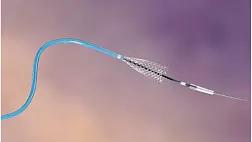


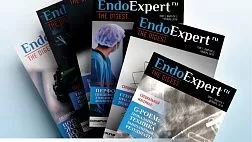

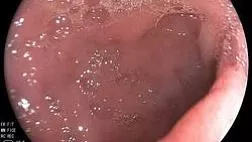
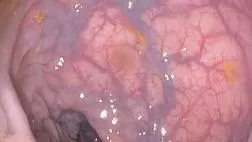

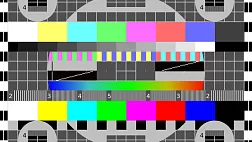
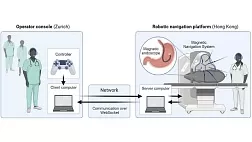


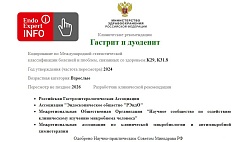

.jpg)

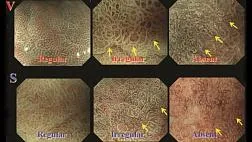
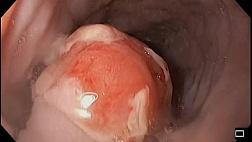
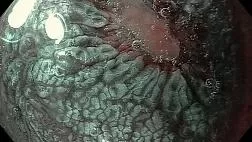
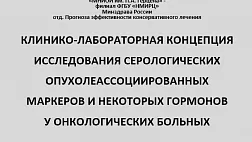
.png)
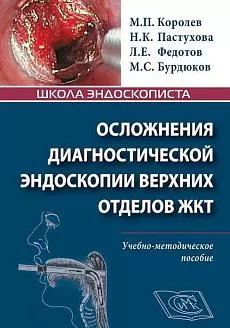

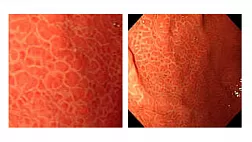
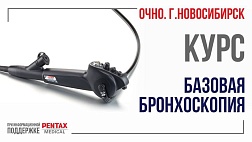









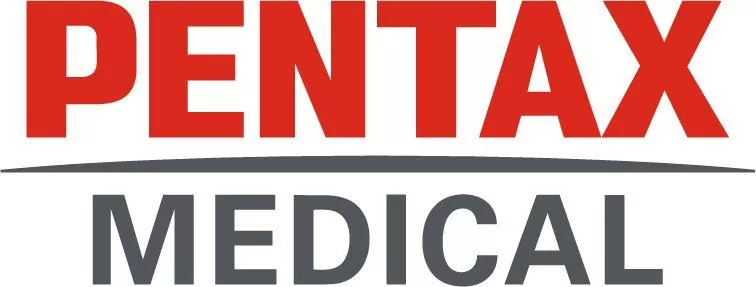
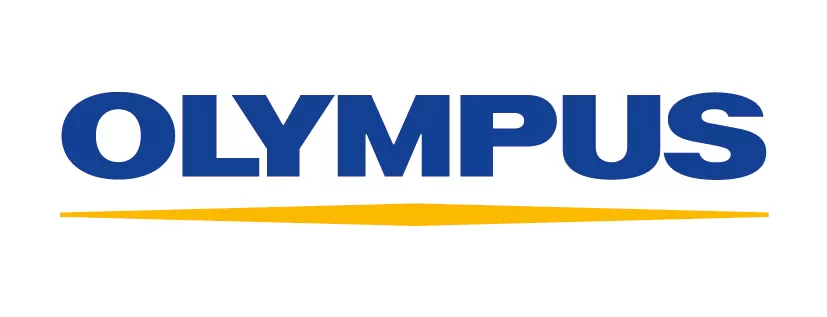



Комментарии